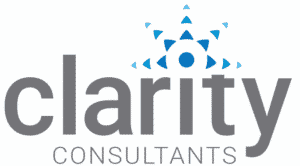Technology is continuously changing the training landscape, creating unique opportunities to enhance engagement, knowledge retention, and overall effectiveness. One area where the impact is clearly visible is personalization.
Today, training experiences can be adjusted to meet the unique needs of an individual learner. Often driven by artificial intelligence (AI), these customizations have a significant impact on the overall relevancy of presented course options, a move that can significantly enhance engagement.
However, the approach has many more facets to explore. Here’s a look at personalized learning trends that can fill gaps in your team and process.

AI-Driven Adjustments to Customize Training Based on Existing Expertise
As mentioned above, AI is playing a role in learning personalization. One way it’s affecting the landscape is through training customization that takes a learner’s existing expertise into account. Essentially, the AI can analyze an employee’s past performance in various subject areas as they complete training. When it notes that the learner is highly proficient in a skill area, it eliminates lower-level courses that the employee doesn’t need, as they already have that knowledge. If it sees that a learner is struggling with a topic, it can incorporate more coursework to get them up to speed. This approach has a significant impact on overall engagement. Employees with advanced knowledge don’t have to waste time on courses covering information they already know, which would cause the module to seem dull. Those who are struggling won’t feel overwhelmed by information they don’t have the foundation to understand, allowing them to instead build up the right expertise before reaching those levels. With this strategy, immediate feedback is often part of the equation. The AI can assess a learner’s performance as they participate in quizzes or engage in simulations. When the employee makes a misstep, the AI can present information designed to function as guidance or shift the learner into a course related to the subject.Improved Relevancy Through Role-Specific Training Pathways
Another common personalization approach is role-specific training pathways. With these, L&D professionals can develop plans based on specific jobs, fields, departments, or functions. When you use this strategy, learners only complete courses that are genuinely relevant to their position. This eliminates time-wasters that fall outside of their field and won’t boost their performance, allowing them to concentrate on courses that provide genuine value. This method is also highly effective for upskilling. Employees in specific positions can work their way into subjects that represent existing skill gaps in the team. As a result, they’ll acquire knowledge that they can use to elevate their performance and support ongoing company goals that were previously stymied by the skill gap.Are You Ready to Incorporate Personalization into Your Training Program?
At Clarity, we have 30 years of experience in L&D, giving us the knowledge and expertise to update your training program to incorporate personalization, allowing you to boost engagement and close skill gaps. Plus, if you’re trying to expand your internal L&D team, Clarity can be your candidate search ally, connecting you with top talent right when you need them. If you want to partner with leading L&D professionals, Clarity Consultants is here. Contact us today.
